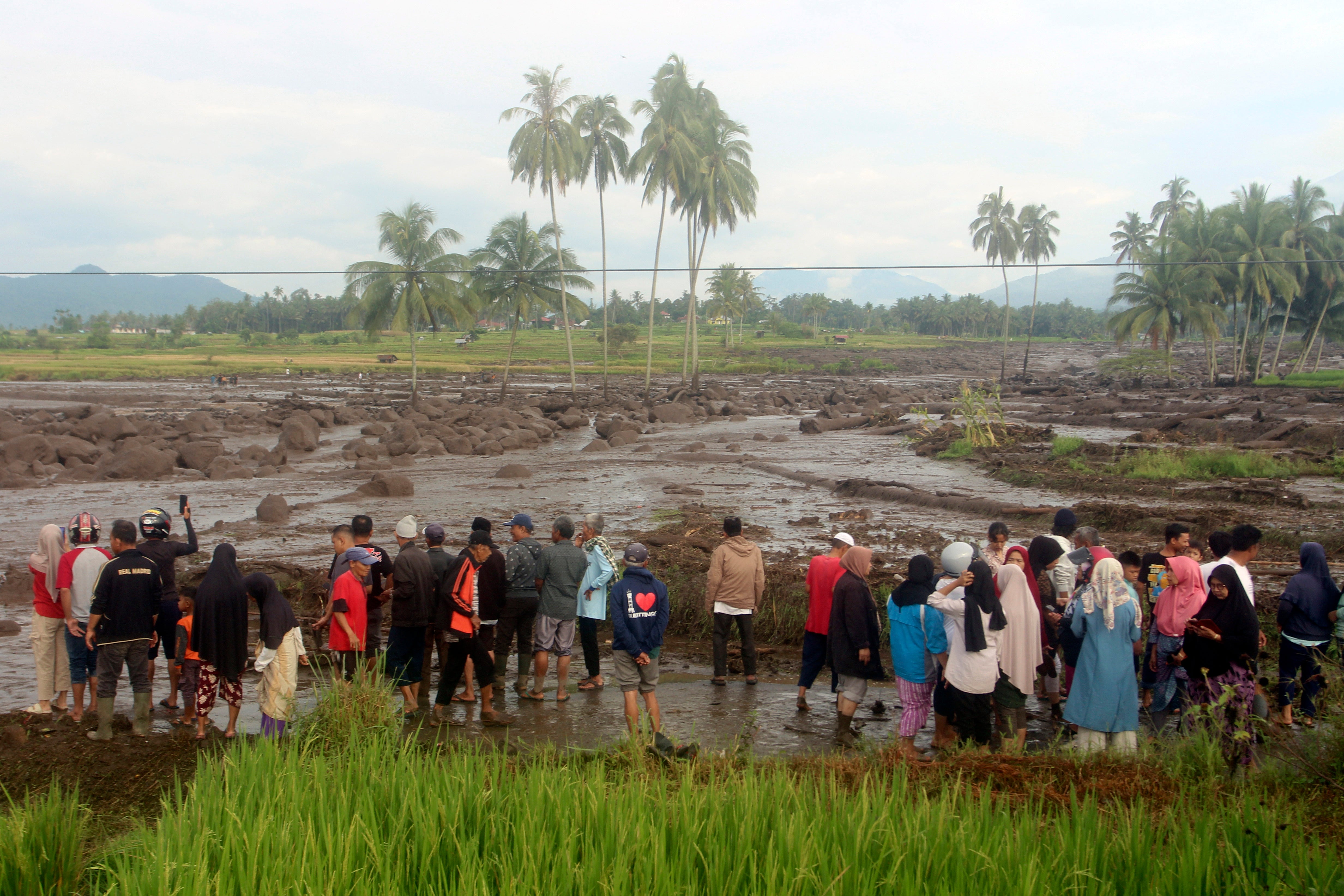Dozens killed as flash floods and cold lava flow hit Indonesia’s Sumatra island
Heavy rains and torrents of cold lava and mud flowing down a volcano's slopes on Indonesia’s Sumatra island have triggered flash floods that killed at least 15 people and injured several others

Your support helps us to tell the story
From reproductive rights to climate change to Big Tech, The Independent is on the ground when the story is developing. Whether it's investigating the financials of Elon Musk's pro-Trump PAC or producing our latest documentary, 'The A Word', which shines a light on the American women fighting for reproductive rights, we know how important it is to parse out the facts from the messaging.
At such a critical moment in US history, we need reporters on the ground. Your donation allows us to keep sending journalists to speak to both sides of the story.
The Independent is trusted by Americans across the entire political spectrum. And unlike many other quality news outlets, we choose not to lock Americans out of our reporting and analysis with paywalls. We believe quality journalism should be available to everyone, paid for by those who can afford it.
Your support makes all the difference.Heavy rains and torrents of cold lava and mud flowing down a volcano's slopes on Indonesia’s Sumatra island triggered flash floods that killed at least 15 people and injured several others, officials said on Sunday.
Monsoon rains and a major mudslide from a cold lava flow on Mount Marapi caused a river to breach its banks and tear through mountainside villages in Agam and Tanah Datar districts in West Sumatra province just before midnight on Saturday.
The floods swept away people and submerged more than 100 houses and buildings, National Disaster Management Agency spokesperson Abdul Muhari said.
Cold lava, also known as lahar, is a mixture of volcanic material and pebbles that flow down a volcano’s slopes in the rain.
By Sunday, rescuers had pulled out 11 bodies in the worst-hit village of Canduang and recovered four other bodies in the neighbouring village of Sungai Pua, Mr Muhari said.
The agency said in a statement that at least seven villagers were injured by the flash floods, and rescuers were searching for other possible victims. It said 60 people had fled to temporary government shelters.
The disaster came just two months after heavy rains triggered flash floods and a landslide in West Sumatra’s Pesisir Selatan and Padang Pariaman districts, killing at least 21 people and leaving five others missing.
The 2,885-metre (9,465-foot) Mount Marapi erupted late last year killing 23 climbers who were caught by a surprise weekend eruption. The volcano has stayed at the third highest of four alert levels since 2011, indicating above-normal volcanic activity under which climbers and villagers must stay more than 3 kilometres (1.8 miles) from the peak, according to Indonesia’s Center for Volcanology and Geological Disaster Mitigation.
Marapi is known for sudden eruptions that are difficult to predict because the source is shallow and near the peak, and its eruptions are not caused by a deep movement of magma, which sets off tremors that register on seismic monitors.
Marapi has been active since an eruption in January 2023 that caused no casualties. It is among more than 120 active volcanoes in Indonesia, which is prone to seismic upheaval due to its location on the Pacific “Ring of Fire,” an arc of volcanoes and fault lines encircling the Pacific Basin.